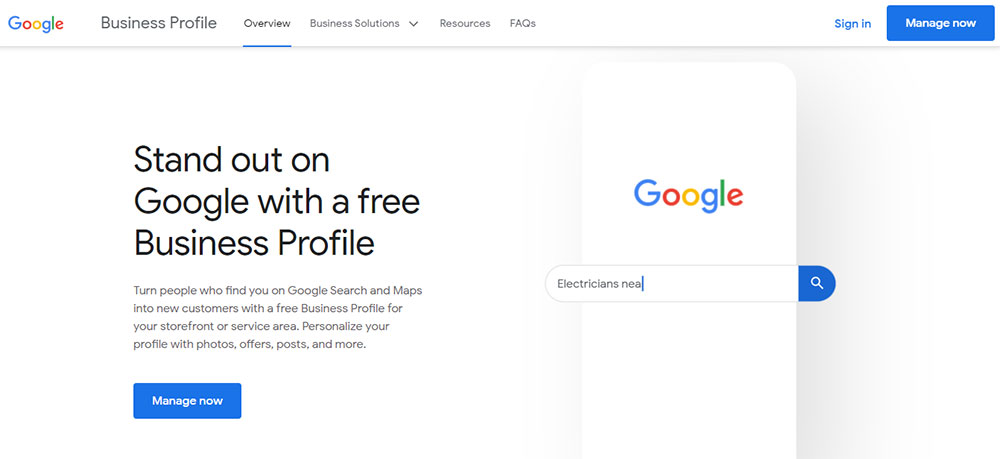Here’s what almost everyone who has a business knows: To reach your target audience, you need to have a strategic SEO campaign working hard behind the scenes. If you’re an acupuncturist, this is true for you, too.
But how do you do it? This comprehensive acupuncture SEO guide will tell you how to implement the best acupuncturist SEO strategy for you, your patients, and the search engines.
So, let’s get straight to it, and we’ll start at the beginning…
What is SEO for Acupuncturists?
SEO stands for search engine optimization. This is done by optimizing the content throughout your website so Google can read and understand your pages, which is important if you’d like to be provided as a result of a user’s query.
When Google thinks you’d be a good fit for a user, you’ll be pushed to the top of the SERPs (search engine results pages). And, as you know, the higher you are on the Google list, the more likely you are to be found by your target audience.
The Perfect SEO Strategy for Your Acupuncture Business
There are various elements to consider when creating an effective acupuncturist SEO campaign.
Local SEO for acupuncturists
This is a good one. Every business that has a physical location needs local SEO. Local SEO is how you get your customers through your doors using online content that finds and appeals to your audience within your community.
Put simply: You’re optimizing for your geographical location. This is done through:
- Creating city pages on your website; if you have more than one location, have one page for each and use local jargon when possible
- Always using location names throughout your website; this can be cities, neighborhoods, counties, etc.
- Getting testimonials and always using that client’s location within it (i.e., John D., neck stiffness client, Their Town)
- Using the search terms that the locals use as your keywords
- Setting up, claiming, and optimizing your Google Business Profile and the other business-related listings (see more on this below)
Learn more about local SEO with these resources:
- Local SEO Guide: Mapping out a Successful Local SEO Strategy
- Local SEO: How To Rank For Surrounding Cities Near You
- Local SEO: How to gain more positive online reviews

Image from Google Business Profile
Optimize your Google Business Profile (GMB), Bing Places Listing, & Apple Business Connect (ABC) Place Card
Perhaps this sounds like a monumental undertaking, but it’s not. However, it is a massive win for your local SEO.
These three listings are very similar in content and setup, so you’re just distributing the same key information about your business in a few different locations on the web.
GMB, Bing Places, and ABC are all created to enhance your local SEO strategy. They’re all free, and they all work wonders.
All you have to do is provide details about your business, add some optimized images, and allow your patients to leave reviews on the platforms. Doing this will promote the user experience and give the search engines greater insight into who you are, what you do, and whether they should trust you.
Here are some basics to include within each of these listings:
- Your name, address, and phone number (NAP) which should be consistent, so if you write “Main St.” on one, don’t write “Main Street” on another
- Your hours of operation
- The acupuncture services and products you offer
- A description of who you are, and don’t forget to use your keywords
- Optimized images of you, your team, your building, etc., these should be unique images, not stock photos
- Postings regarding promotions, events, specials, etc.
Haven’t created these essential local search listings yet? No problem, learn how here:
- Set up your Google Business Profile
- Set up your Bing Places listing
- Set up your Apple Business Connect place card
Content & keywords related to your acupuncture business
To know what kind of content your target audience wants, you must know your target audience (or buyer persona). A common misconception is that you want everyone to be your target audience. But that’s not practical. Hone in on the clients you want to work with and create content for them.
Once you’ve determined your buyer persona, you can generate effective acupuncture content around their search words that’s:
- Educational
- Informative
- Compelling
- Entertaining
Google uses the keywords you put in your content as a guide to submit your business as a result of a query. The point of saying this is to remind you of the importance of keywords.
If you’re struggling with determining keywords, here are some free tools to help:
So, yeah, while keywords are imperative, don’t forget to write great content around them. If your content is bland, uninspired, unoriginal, or uninformative, your users won’t relate, connect, or come back for more.
For more content insight:
- How to Write Content That Generates Leads for Years to Come
- Writing for SEO: 8 Simple Steps for Writing Killer SEO Content
- How to Repurpose One Blog Post into 15+ Pieces of Fresh Content
Note that content isn’t only the copy on your pages; it’s everything on your pages, including images, videos, infographics, etc.
Acupuncture content ideas:
- Step-by-step images of how to keep your body protected
- Tips for ergonomically designed workstations
- Tips to help avoid stress
- Videos on relaxation and breathing techniques
- How-to videos
- Lists of healthy habits
- Tips to keep your body healthy
- Initial visit process
- Event calendar
- Educational blog with articles on particular and relevant topics
- Turn blog posts into videos
- Guest blogging
Now’s a good time to discuss your blog. We hear the groans, we acknowledge, we politely move on. If you don’t blog, today’s your day to start!
Blogging is an easy way to tell your audience you’re an authority, connect and engage with them, and get more users to your website (and through your doors). But it also tells Google you’re an authority in the acupuncture industry, giving more opportunity for the search engines to send users your way.
Blogging resources:
- 10 Fierce Blogging Tools to Make the Process More Efficient & Effective
- 12 Pro Tips For Creating Better Blog Posts
Now’s a good time to discuss your social media. We hear the groans, we acknowledge, we politely move on. If you don’t use social media, today’s your day to start!
Social doesn’t technically contribute to your SEO campaign, but it does give you a better chance of reaching more people. People = clients. Your clients. Plus, when you link from your social channels to your website, clients will go there. This is good for you and for your Google ranking.
Read & learn from your data
This is the sciency stuff, but it’s important, so don’t skip it. If you don’t know how your website is performing or how your visitors are reacting within each page, you don’t know how to improve it.
You must read your data and learn from it so you can implement better strategies for your users. Monitoring the actions taken on your site is invaluable. And you can do a lot of it for free (and it’s not as technical as you think).
Here are the free tools that will help:
- Google Analytics– tells you how your pages perform, visit duration, keyword intel, and overall SEO performance
- Google Search Console– tells you how your website is ranking in the search engines, the number of clicks you’re getting, your click-through rates, and more
Just the FAQs
Can we just say how much we love a FAQ page? This is where you can write out excellent questions your target audience wants answered. It’s great for the user experience (which is vital to Google), and it’s great for all the voice search technology.
This means you can write questions exactly as your users ask them for tremendous SEO results. So go ahead and write, “Where’s a Reiki acupuncturist near me?” because that’s how users ask Siri, Alexa, and Hey Google questions. It’s fluid speech, unline how most of us type a query in the search bar.
FAQs are a quick way to get a leg up on the voice search phenomenon and your competition. Not sure what your audience wants to know? Ask your current clients.
Oh, and obviously, use those keywords.
Basic Optimization Rules
The user experience
We mentioned this above, but let’s not ever, ever, ever forget the user experience (UX); an incredibly consequential part of your website. This involves everything from your outstanding content to where you have your navigation bar to your contact information, and oh-so-much more.
Mobile-friendliness
This little doozy of optimization is imperative because if you’re not optimized for a handheld device, you’re upsetting a whopping 60% of your searchers ’cause they’re searching for you from their phones.
Site speed
Heads up: You have less than three seconds for your page to load before over 40% of your visitors bounce away to your competition. Check your site speed on PageSpeed Insights.
Link building
Linking is a great resource to get in front of a new but relevant audience. Build relationships with your industry, link to them, and have them link to you.
Also, link to your own pages from your own pages wherever it makes sense. (Yes, like we just did there.)
Meta descriptions
After you ask Google your query, you get many results on the SERPs. The copy that appears as the description of what’s on the webpage Google provided is the meta description.
Here, you have an opportunity to use your keywords and give your visitors the information they need to click on your meta title (the link to your page) and get them to your site.
If you don’t write it, Google will, and it may not be the best copy to show. So, do it and do it well.
Maximize Your SEO Efforts & Get the Acupuncture Clients You Want
If you want organic (unpaid) traffic to your website, SEO is how you get it. It plays a significant role in how your target audience sees you, connects with you, and gets to you.
The right website traffic leads to more clients, and that’s the goal.
If you’d like to learn more about how to create the best acupuncturist website, schedule your free discovery call.




![How to Write a Professional Chiropractic Bio [Template Included]](https://propelyourcompany.com/wp-content/uploads/write-a-bio-500x383.jpg)
